Book a European river cruise to explore cities, culture, and scenery in comfort. Learn tips, costs, and the best rivers to make your trip memorable.
Booking a European river cruise is the perfect way to explore historic cities, scenic landscapes, and charming villages—all while enjoying luxury on the water. Discover how to choose the right cruise, the best rivers to sail, what’s included, and expert tips for making your journey unforgettable.
Why Book a European River Cruise? 🚢
Have you ever dreamed of waking up to castles on one side and vineyards on the other? That’s what a European river cruise delivers. Unlike ocean cruises, these trips focus on intimacy, relaxation, and cultural immersion. You’ll dock right in the heart of historic cities, avoiding long transfers or crowded ports.
With fewer passengers than massive cruise liners, river cruises offer personalized service and a relaxed vibe. Meals highlight local cuisine, and daily excursions let you explore towns at your own pace. Best of all, unpack once and travel effortlessly through multiple countries. Booking a European river cruise means combining comfort with adventure.
How to Book a European River Cruise Easily 📅
Booking might feel overwhelming at first, but it’s simpler than you think. Start by picking your travel dates and preferred river. Most cruises run from spring to late fall, with peak season in summer. Decide whether you want a short trip (4–7 nights) or an extended one (10–14 nights).
Next, research cruise lines—each offers different styles, from luxury to budget-friendly. Booking directly through the cruise line often gives perks like discounts or upgrades. However, using a travel agent ensures expert guidance and insider tips. Always compare packages, check reviews, and confirm what’s included before paying.
Best Rivers in Europe for Cruises 🌊
Europe boasts many rivers, each with its own charm. Some are famous for wine, others for castles, and a few for breathtaking landscapes. Here are the most popular:
- Danube River – Runs through Germany, Austria, Hungary, and beyond. Known for music, culture, and history.
- Rhine River – Famous for medieval castles, vineyards, and fairy-tale towns.
- Seine River – Romantic sailings through Paris and Normandy.
- Douro River – Portugal’s wine country with stunning valley views.
- Elbe River – Rich in history, connecting Berlin to Prague.
Each river offers something unique, making it easy to match your interests with your cruise choice.
Comparing Cruise Lines and Styles ⚓
Not all cruise lines are the same. Some focus on luxury, others on cultural immersion, and a few on affordability.
| Cruise Line | Best For | Unique Feature |
| Viking River Cruises | First-time travelers | Stylish ships and cultural lectures |
| AmaWaterways | Food & wine lovers | Fine dining and wine tastings |
| Avalon Waterways | Spacious cabins | Panoramic open-air balconies |
| Emerald Cruises | Budget-conscious travelers | Affordable pricing with strong value |
| Uniworld | Luxury seekers | Boutique ships with all-inclusive perks |
When booking, think about your budget, interests, and preferred level of service.
What’s Included in a River Cruise Package? 🎟️
One of the best parts about river cruising is that so much is included. Most packages cover:
- Accommodations in a comfortable cabin
- All onboard meals and drinks (sometimes alcoholic beverages too)
- Daily excursions or guided tours
- Onboard entertainment like lectures, music, and cultural shows
- Transportation between cities
However, every cruise line differs slightly. Some include gratuities, Wi-Fi, or premium excursions, while others charge extra. Always check the fine print before booking.
Cost of a European River Cruise 💰
Prices vary based on river, cruise line, and cabin type. Short cruises can start around $1,500 per person, while luxury lines may charge $6,000+ for 10 nights. Seasonal demand also plays a role—summer cruises are more expensive, while spring and late fall offer deals.
Cabin choice affects the price too. Standard cabins are affordable, while balcony suites cost more but offer scenic views. Remember, many perks—like meals, excursions, and transfers—are already included, making it great value compared to booking hotels and transport separately.
When Is the Best Time to Cruise in Europe? 🌸🍂
Timing your cruise is key to enjoying the best weather and experiences.
| Season | Pros | Cons |
| Spring (Apr–Jun) | Mild weather, blooming landscapes | Some rain showers |
| Summer (Jul–Aug) | Warm weather, lively festivals | Higher prices, crowded ports |
| Fall (Sep–Oct) | Beautiful autumn colors, wine harvest | Cooler nights |
| Winter (Nov–Dec) | Christmas markets on select cruises | Limited routes, chilly weather |
If you love festive vibes, Christmas market cruises are magical. But if you want fewer crowds, spring or fall is ideal.
How Long Should Your River Cruise Be? ⏳
Most river cruises last 7 to 10 nights, covering multiple cities. Shorter 4–5 night cruises are perfect for first-timers who want a taste. Longer cruises of 14 nights or more combine multiple rivers, offering an in-depth experience.
Ask yourself: Do you prefer a quick getaway or a deep dive into culture? If it’s your first time, a 7-night cruise strikes the perfect balance between sightseeing and relaxation.
Choosing the Right Cabin 🚪
Cabins range from cozy inside rooms to luxurious suites with balconies. If you love watching the scenery pass by, a balcony cabin is worth the upgrade. For budget travelers, standard cabins provide comfort without the extra cost.
Consider how much time you’ll spend in your room. If you plan on joining every excursion and activity, a simple cabin works fine. But if you enjoy quiet evenings and privacy, splurging on a suite might be worth it.
What to Pack for a European River Cruise 🎒
Packing smart makes your trip stress-free. Essentials include:
- Comfortable walking shoes for daily tours
- Lightweight layers for changing weather
- A small backpack for excursions
- Dressy outfits for formal dinners
- Travel adapters for European outlets
- Sunscreen, sunglasses, and a hat for sunny days
- A rain jacket or umbrella, just in case
Remember, river cruise ships often have laundry services, so you don’t need to overpack.
Daily Life Onboard a River Cruise 🛳️
River cruise life feels more relaxed than ocean cruises. Mornings often begin with a buffet breakfast, followed by guided excursions. Afternoons are for exploring independently or relaxing on deck. Evenings feature fine dining and sometimes live music or lectures.
Unlike mega-ships, you won’t find casinos or water parks here. Instead, the focus is on learning, culture, and personal connections. Expect smaller groups, intimate conversations, and time to enjoy the journey at your own pace.
Exploring Cities and Excursions 🏰
Each stop brings a chance to explore a new city or village. Excursions often include walking tours, museum visits, wine tastings, or cycling adventures. Some cruises also offer optional premium excursions, like private castle tours or cooking classes.
Because ships dock in central locations, you can easily walk into town after excursions. This flexibility is one of the biggest perks of river cruising. You get both structured tours and free time to wander.
Food and Drink on the Cruise 🍷🍽️
Dining is a highlight on European river cruises. Menus often showcase regional dishes, giving you a taste of the local culture. You might enjoy French pastries in the morning, Hungarian goulash for lunch, and German sausages for dinner.
Many cruises include unlimited wine and beer during meals, with premium drink packages available. The atmosphere is casual yet elegant, with shared dining that encourages conversation with fellow travelers.
Tips for First-Time Cruisers ✨
- Book early for the best cabins and prices.
- Research the rivers before choosing your itinerary.
- Arrive a day early to avoid flight delays.
- Pack versatile clothing for changing weather.
- Don’t over-schedule excursions—leave time to relax.
Following these tips ensures a smoother and more enjoyable experience.
Advantages Over Ocean Cruises 🌐
River cruises differ greatly from ocean cruises. Instead of long sea days, you enjoy constant scenery and daily stops. Ships are smaller, so boarding is quick and stress-free. You won’t deal with seasickness since rivers are calm.
Best of all, you’ll visit inland cities that ocean liners can’t reach. Think Vienna, Budapest, or Cologne—places rich in history and charm. For travelers who love culture and scenery, river cruises often feel more rewarding.
Hidden Gems on European Rivers 💎
Some lesser-known rivers offer equally stunning experiences. The Saône in France passes through Burgundy’s wine country. The Moselle features charming German villages and winding vineyards. The Po River in Italy offers a rare chance to explore Venice and beyond by water.
These hidden gems often come with fewer crowds and a more authentic feel. If you’ve cruised the Danube or Rhine before, exploring smaller rivers is a great way to see Europe differently.
Conclusion 🌟
Booking a European river cruise is one of the best ways to experience Europe’s culture, history, and beauty. From the romantic Seine to the castle-lined Rhine, each river tells a story. With meals, lodging, and excursions included, it’s stress-free and rewarding.
Whether you’re a first-timer or a seasoned traveler, a river cruise offers an unforgettable mix of luxury and exploration. Start planning today, and your dream European adventure will soon become reality.
FAQs ❓
- How much does a European river cruise cost?
Most cruises range from $1,500 to $6,000 per person. Prices depend on the cruise line, cabin type, and season. Luxury options can cost more, but they often include extra perks. - What is the best time to book a European river cruise?
Spring and fall are ideal for lower crowds and mild weather. Summer offers lively festivals but higher prices. Booking early ensures the best deals and cabins. - Do European river cruises include excursions?
Yes, most packages include daily guided tours. These range from walking tours to wine tastings. Optional premium excursions may cost extra. - Are European river cruises suitable for families?
River cruises are best for adults and older teens. Few ships have kid-friendly activities. Families who enjoy history and culture will love the experience. - Do I need travel insurance for a river cruise?
Yes, travel insurance is highly recommended. It covers trip cancellations, medical emergencies, and lost luggage. Policies give peace of mind during your trip.
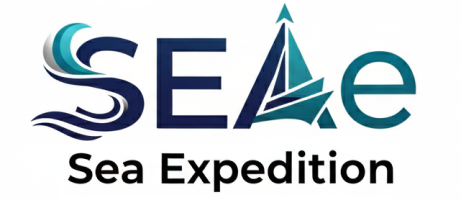
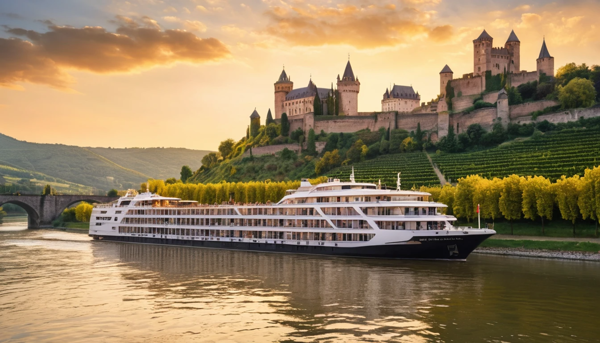
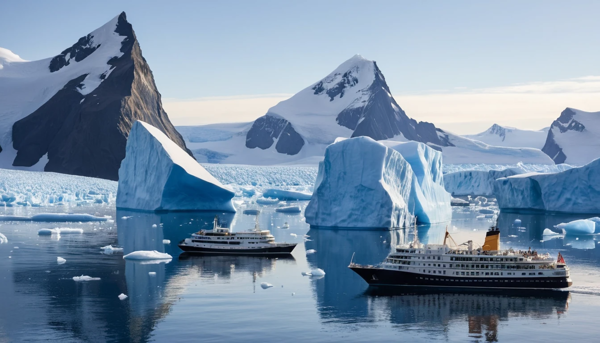
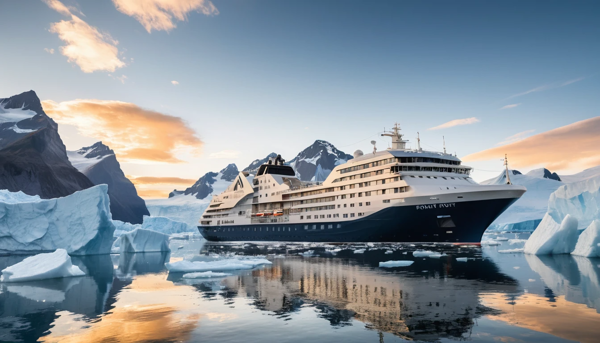
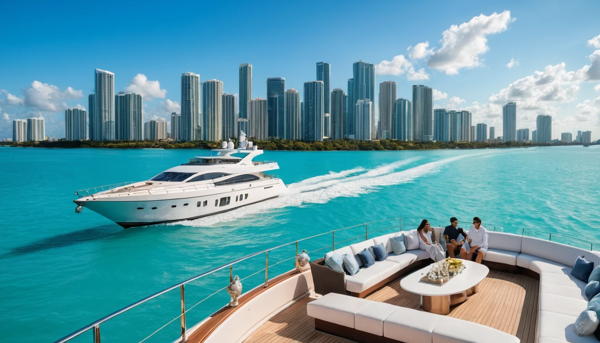
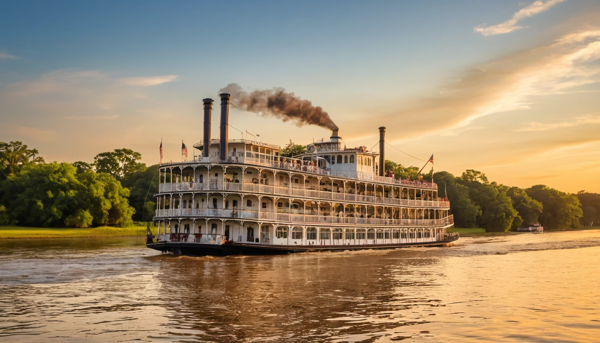

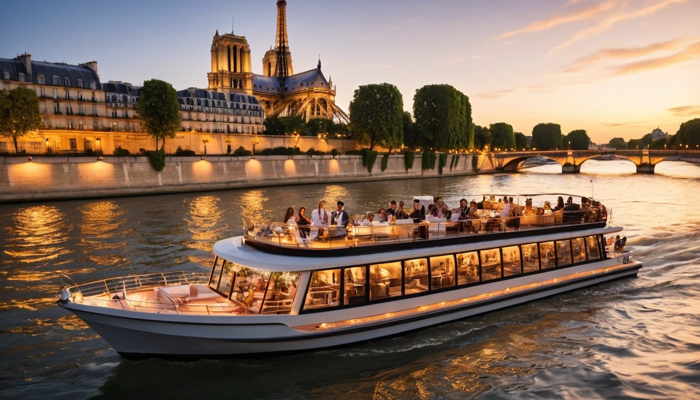
Leave a Reply